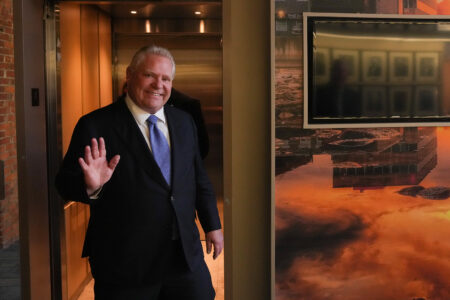
Mere months after launching its iGaming market, the government of Ontario initiated regulation changes driven by weaknesses in its model. The province quickly learned that its overreliance on gaming operators for policy input was little more than a risky wager, and now is seeking to backtrack. While this illustrates fissures in Ontario’s approach to gaming, it also demonstrates the importance of meaningful consultation and the consequences of unilateral decision-making.
When the province first launched iGaming Ontario – a subsidiary of its gaming regulator – government officials touted the new organization as a means of challenging the “grey market” for online betting and conducting gaming in a responsible way. With an abundance of confidence, provincial officials did not offer consultation to Indigenous governments affected by the decision. Instead, it moved forward with a “we know best” approach.
Despite its conviction in the new model’s ability to address unregulated gaming, the Alcohol and Gaming Commission of Ontario (AGCO) allowed a lengthy grace period for operators to continue running unregulated sites. Months later, amidst public displeasure regarding the proliferation of gaming, the government, through the AGCO, issued new regulations for online betting operators.
Ontario’s iGaming market will hurt First Nations and others
Ontario’s gambling profits flow from a hidden tax on the vulnerable
Indigenous consultations must be better integrated into Ontario policy
Prior to the launch of iGaming, multiple First Nations, including Mississaugas of Scugog Island First Nation (MSIFN), which I proudly represent, requested formal consultation with the provincial government.
We also asked for opportunities to participate in policy development and to advance fair provisions to mitigate the policy’s adverse impacts on our economies and ability to self-govern. Despite its legal obligations to do so, the province denied these requests and instead went forward with a rushed program launch practically devoid of First Nations input.
Indigenous consultation produces stronger, more effective policy. By maximizing the value of nation-to-nation relations, policy-makers can strengthen their decisions through collaborative work with Indigenous leadership.
But it’s more than that. There’s a compulsory obligation to be met. The Crown’s duty to consult, and where appropriate accommodate, is an opportunity to improve policy and mitigate harms to First Nations. Meaningful engagement with affected Indigenous governments can highlight shortfalls in policy implementation through the sharing of knowledge, supporting Indigenous and treaty rights, and creating opportunities to address such weaknesses. Perhaps this is where duty and self-interest could happily coincide for the province.
While developing its iGaming regime, officials in Ontario received requests from Six Nations of the Grand River, Shawanaga First Nation, the Mohawk Council of Kahnawà:ke along with MSIFN. All have experience within the gaming sector and all expressed concerns over the province’s approach. Each Indigenous government also offered input that could have aided in the development process and might have prevented post-implementation failures.
MSIFN urged the provincial government to pause its implementation to ensure that consultation would be meaningful and that existing gaming contracts could be thoughtfully addressed. Instead, with minimal notice, the government set a launch date for iGaming Ontario mere days after MSIFN made its request for formal consultation.
In the months that followed, the provincial government faced implementation challenges. Notably, my MSIFN council colleagues and I expressed concerns over the AGCO’s regulatory model, including its approach to advertising. Shortly after the regulated market was launched, Ontarians became inundated with sports betting advertising and promotions – far exceeding the often-limited ad campaigns led by casino operators. Popular athletes, the kind viewed as role models by children and youth, became the face of gaming sites. Commentators began discussing sportsbook odds during hockey game intermissions.
Through MSIFN’s experience in developing its own gaming code, we know how important it is that gaming is conducted responsibly, including preventing underage participation. But in their rush to launch the initiative, regulators did not request further input from MSIFN or implement effective regulations for advertising. By failing to require reasonable limits on advertising, regulators seemingly normalized gambling on professional sports and weakened public confidence in the government’s management of gaming.
Agreements for land-based gaming sites generally prescribe limits on operations as a means of preventing an oversaturation of gaming options. MSIFN and other First Nations that participate in the gaming sector urged the government to address agreements with existing stakeholders and develop thorough contracts with new entrants.
This was to ensure the public’s best interests were upheld and the policy aligned with the stated goals of the new market. In hindsight, the legalization of iGaming seems to have done a lot to garner interest from today’s youth and achieved little to prevent grey market activity.
Had the province embraced consultation, it would have reaped the benefits of Indigenous governments’ knowledge and experience after years of participation in this complex sector – some for a decade before the AGCO. Beyond satisfying constitutional responsibilities, the government could have gained an understanding of the gaming industry from a governmental, rather than only a private sector, perspective.
This is a lesson in the deeper value of consultation. The Ontario iGaming experience is not an anomaly. It speaks to the all-too-common view that consultation is a compulsory step to be restricted to a minimal standard. For too long, the voices of Indigenous leaders have been disregarded in favour of the perspectives of “consultants” and “experts.” That outdated perception ultimately contributes to the continued deterioration of Crown-Indigenous relations and deprives Canadians of informed decisions by their governments.
As the Crown moves forward on its promises of reconciliation, it should look to Indigenous consultation as one of the many resources it has to support its advancement. Canadian public administration would benefit from a new perception of consultation that recognizes the benefits it offers to policy-makers and taxpayers alike. At the very least, Indigenous consultation must be baked into the policy-making methodology. Participating in a diverse array of initiatives, ranging from gaming to clean energy, Indigenous communities offer an informed perspective to their provincial and federal counterparts, which can greatly improve public policy-making in Canada.










